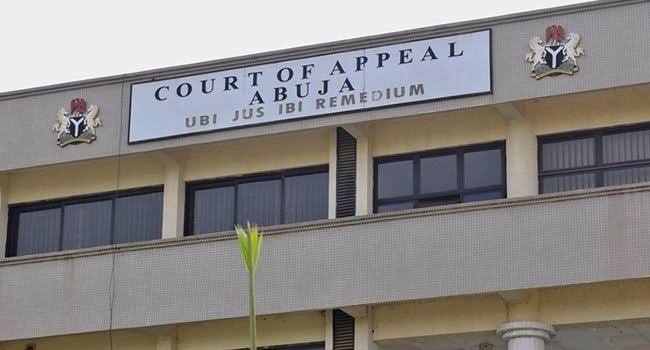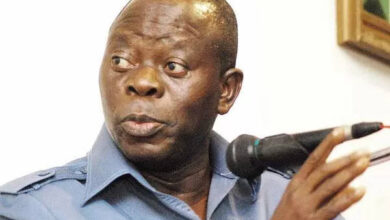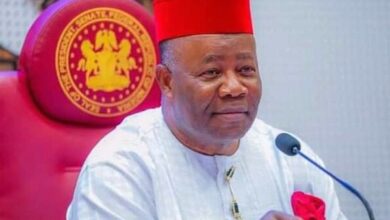BREAKING: Appeal Court Affirms Edo Governor Monday Okpebholo’s Election

The Court of Appeal sitting in Abuja on Thursday affirmed the election victory of Edo State governor, Senator Monday Okpebholo, following the September 21, 2024, governorship election in Edo State.
A three-man panel of the court, presided over by Justice Mohamed Danjuma, upheld the governor’s election while dismissing the appeal filed by the Peoples Democratic Party (PDP) and its candidate, Asue Ighodalo.
ANN previously reported that the Edo Governorship Election Petition Tribunal had, on April 2, 2025, dismissed the petition filed by the PDP and its candidate against the electoral victory of Senator Monday Okpebholo.
Justice Wilfred Kpochi of the Tribunal’s three-man panel delivered a unanimous judgment, stressing that the petitioners failed to prove their allegations of over-voting and electoral non-compliance.
Okpebholo’s Election Victory
Recall that the PDP and Ighodalo had sued the Independent National Electoral Commission (INEC), the governor, and others for declaring Sen. Monday Okpebholo of the All Progressives Congress (APC) the winner of the poll, alleging that the election was marred by irregularities.
- Senator Monday Okpebholo and Dennis Idahosa were sworn in as governor and deputy governor of Edo State on November 12, 2024.
- INEC had, in September 2024, declared Monday Okpebholo the winner of the September 21, 2024, governorship election.
- The INEC Returning Officer for the election, Faruk Kuta, announced that Okpebholo polled 291,667 votes to defeat his closest rival, Asue Ighodalo of the PDP, who garnered 247,274 votes.
Dissatisfied with the outcome, the PDP and its candidate approached the Tribunal for redress, insisting that the governor did not win with the majority of lawful votes cast.
The PDP and its candidate urged the tribunal to nullify INEC’s declaration of the APC and Okpebholo as winners, citing alleged non-compliance with provisions of the Electoral Act, 2022, particularly regarding vote counting.
The petitioners subpoenaed INEC to produce the Bimodal Voter Accreditation System (BVAS) machines used in 133 polling units where election results were disputed.
About 133 BVAS machines used in the governorship poll were eventually admitted by the tribunal as evidence.
However, the APC and Okpebholo’s legal team urged the tribunal to dismiss the petitions as baseless and lacking merit.
They argued that the petitioners failed to substantiate allegations of an “invalid” poll.
Ruling on the petition, Justice Wilfred Kpochi held that it is the petitioner’s duty to prove electoral malpractice allegations against INEC, not the other way round.
The judge agreed with the defendants that the petitioners failed to present polling unit agents and presiding officers to prove their claims.
He said it was “clear to us that the documents tendered from the bar (by the petitioners) were dumped on the tribunal without any competent witness” to substantiate claims of over-voting and electoral non-compliance.
“These witnesses (presented by the petitioners, comprising Local Government agents and others) are total strangers,” the judge stressed.
Subsequently, the tribunal dismissed the petition for failing to prove its case against the governor’s election.
The PDP and others then approached the Appeal Court for redress.
Appeal Court’s Judgment
In its judgment on the appeal and cross-appeal, the Appeal Court held that the tribunal erred in admitting the BVAS machines as evidence as requested by the PDP candidate.
- The Appeal court expunged the evidence of the 133 BVAS machines tendered at the tribunal by the petitioners, faulting the tribunal for “occasioning a miscarriage of justice.”
- The Appeal Court stressed that the tribunal did not comply with relevant statutes for tendering such documentary evidence when it approved the BVAS machines’ admissibility.
- Furthermore, the Appeal Court held that the tribunal was correct to find that the PDP and its candidate “dumped” evidence on it without clearly demonstrating non-compliance and over-voting in line with the Electoral Act or switching on the said BVAS machines at the proceedings.
- The appellate court held that the petitioners needed to call witnesses to speak to the exhibits they tendered.
- It further held that the few witnesses presented by the PDP and its candidate testified on issues “unrelated” to the matters before the tribunal.
“The petitioners failed woefully to prove their allegations of over-voting,” the Appeal Court said, adding that cogent evidence is needed to dispute an election, not “presumptions” by witnesses who could not testify to what they observed at the polling units and collation centres.
- The Appeal Court held that the PDP’s assertion of collation of incorrect scores in affected polling units is grossly incompetent due to their failure to prove the same.
- The Appeal Court held that the tribunal was right to hold that there was no merit in the PDP and its candidate’s petition against the governor.
- Subsequently, the Appeal Court dismissed the appeal and affirmed the judgment of the tribunal.





